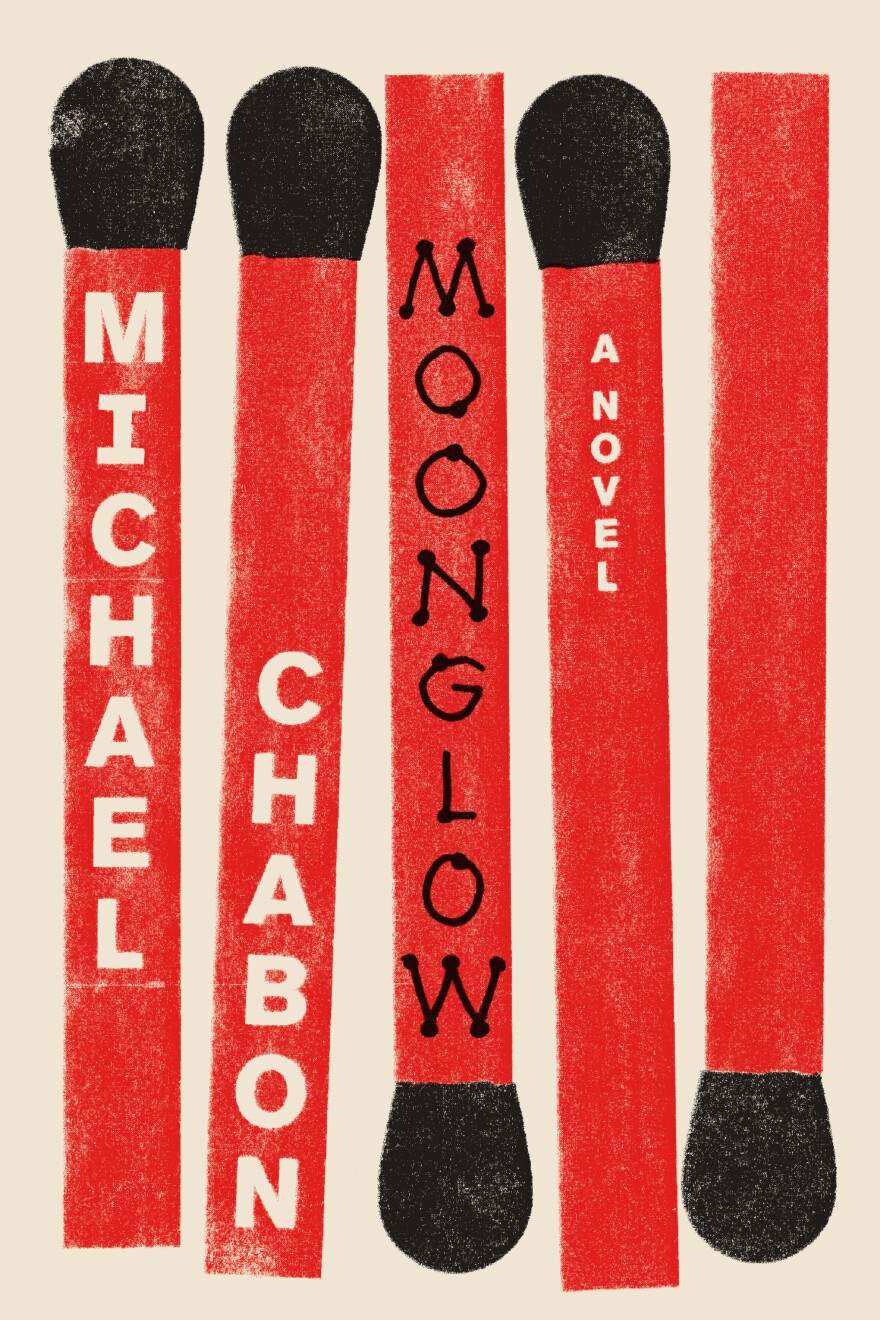Family stories are complicated, as we all know. People don’t talk about things, and when they do, their perceptions of facts – actual facts – are wildly different.
Pulitzer-Prize winning novelist Michael Chabon is a part-time Blue Hill resident. In his latest novel, “Moonglow,” the author explores this idea as he tells a story about his grandfather — or the grandfather of a fictionalized version of himself. Talking with him on his deathbed, Chabon finds out a lot about his grandparents he hadn’t known, much of it both surprising and incredibly dark.
But as much as what happens in the book, Chabon’s decision to write it as a fictionalized “true story” has attracted attention. Maine Things Considered host Nora Flaherty asked him what was behind his decision to tell the story in that way.
Chabon: I had a feeling that it would allow me to get at a lot of interesting, hopefully relevant, story material having to do with how “truth” is arrived at in families, and how the official version of family history and the unofficial version of family history, and … how consensus is arrived at, or is imposed on members of a family, and other times a consensus never emerges, and that’s fascinating to me.
I felt if I could find the right approach, it would also allow me to get into that material, and doing that in the form of a memoir would be hopefully in a sense an easy way of getting at that.
Flaherty: Is “Moonglow” also another kind of story?
Chabon: It’s a love story, I think. To me, it’s the story of the grandparents’ marriage and the things that trouble their marriage, and the roots of the things that trouble their marriage, and the way that they are able to surmount and cope with — and in some ways are unable to surmount and cope with — that trouble and its sources over the course of a fairly long marriage, whose passion never dims.

It’s about two people whose commitment to each other and whose involvement with each other emotionally never subsides.
Flaherty: Shifting gears, like many writers you’re a part-year resident of Maine — you have a house in Brooklin. As a writer, what do you get from spending time here?
Chabon: First of all, I have a tiny studio that my wife and I built. We built matching microstudios behind our house in Brooklin. They’re squares that intersect at a corner and in the corner is the bathroom — we share the bathroom and we each have our own little studio. That is the most perfect space I have ever had to work in.
I work at night, so it’s perfectly dead quiet all night long, except for some frog sounds, owls and coyotes. And then around 4 a.m., I’ll start to hear birdsong and realize “Oh, the day’s coming and I’ve been working all night.”
And we’re surrounded by a community of artists up there, boatbuilders, writers, painters and other visual artists, and there’s that combination of rural farmland and that seascape in such proximity to each other.
And then there’s used bookstores too, and they’re such a resource for any writer.
Flaherty: Who are your favorite Maine writers and books?
Chabon: Well, Richard Russo comes immediately to mind, I love his work so much. And Stephen King, of course, he’s been one of the most important writers in my life since I was, oh, 12 years old. I read “Carrie” and “Salem’s Lot” and “The Stand” and “The Shining,” those first four books of his, as they were published, and they had an incredibly powerful effect on my imagination.
And of course, Charlotte’s Web was really an important book to me, not only as a kid who loved to read, but as a writer too. Because ultimately that’s what it’s about, is its final famous sentence, which I’m going to mangle now when I try to quote it, it’s the idea, something like, “It’s so rare in life to find someone who’s both a good writer and a good friend, and Charlotte was both.”
Editor’s note: The last line reads, “It is not often that someone comes along who is a true friend and a good writer. Charlotte was both.” This interview was edited for length and clarity


